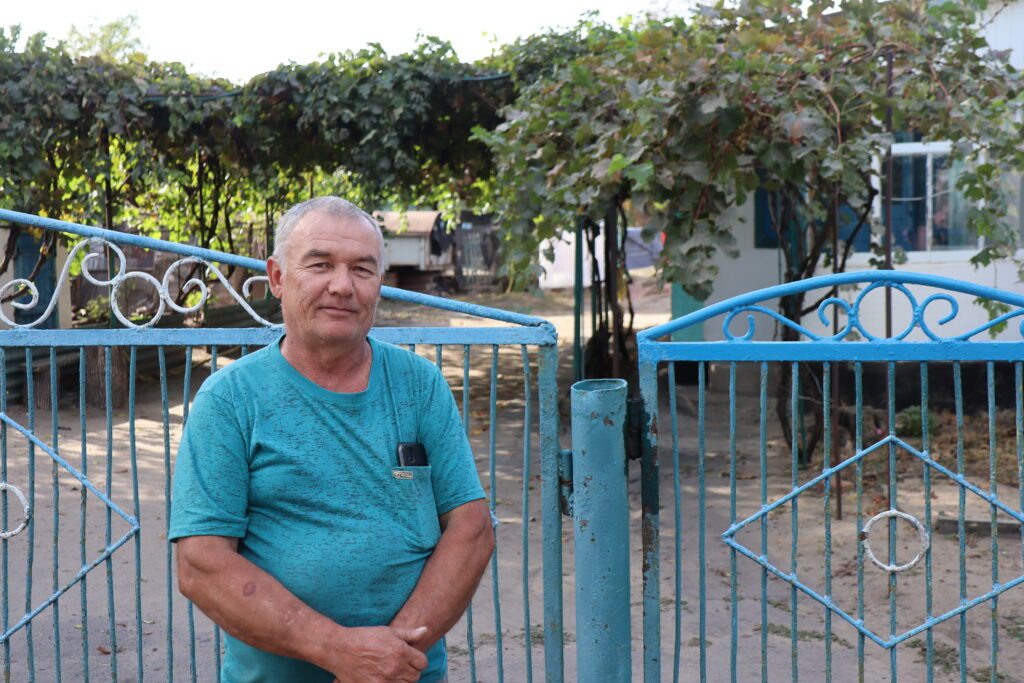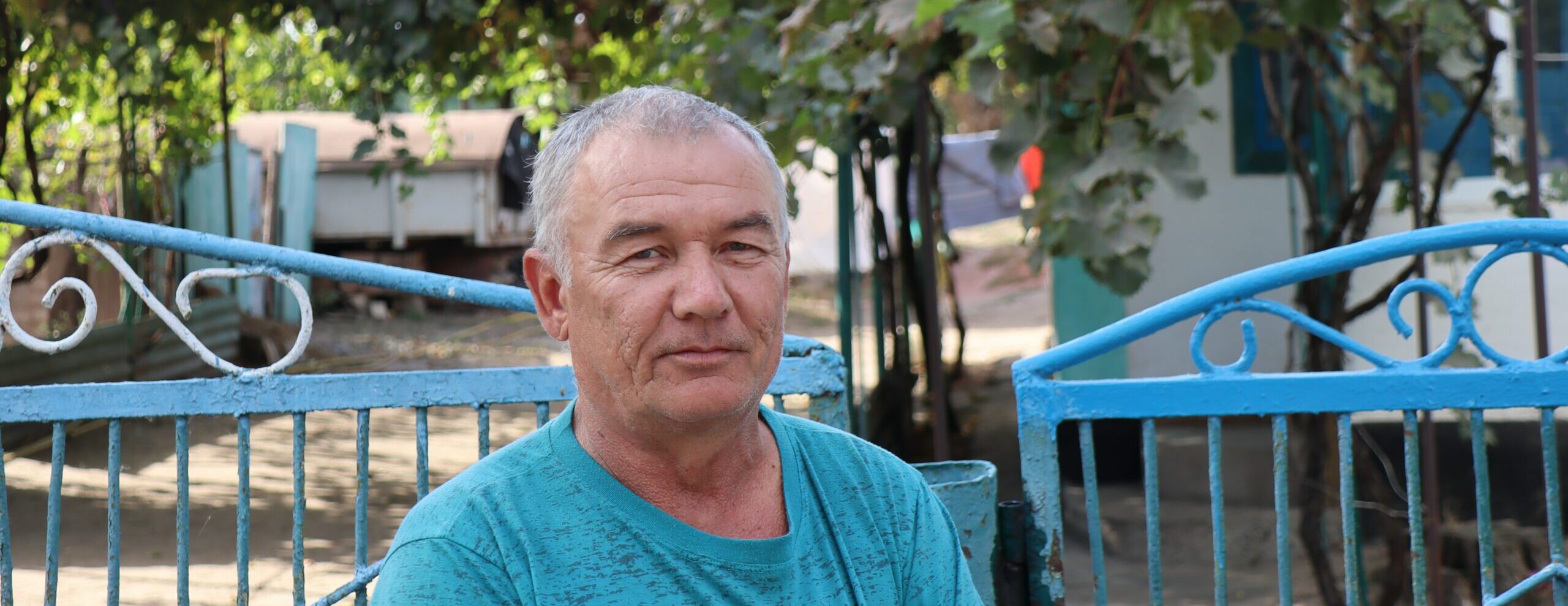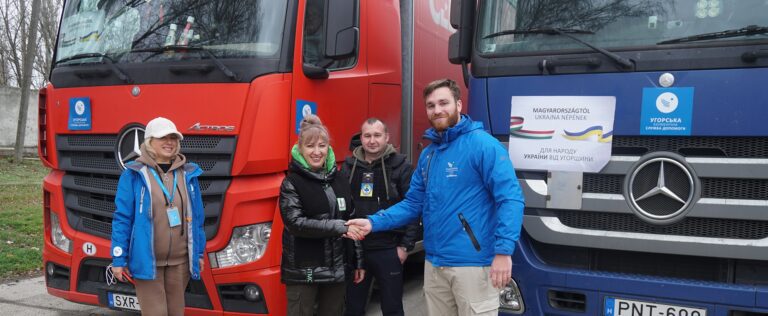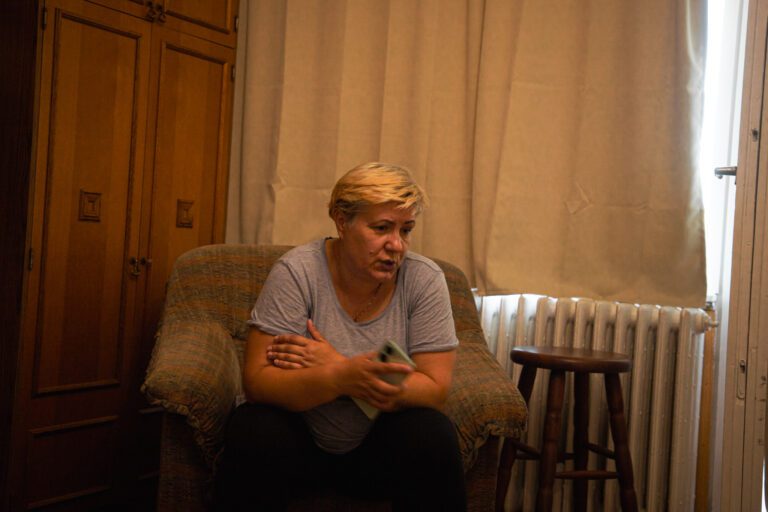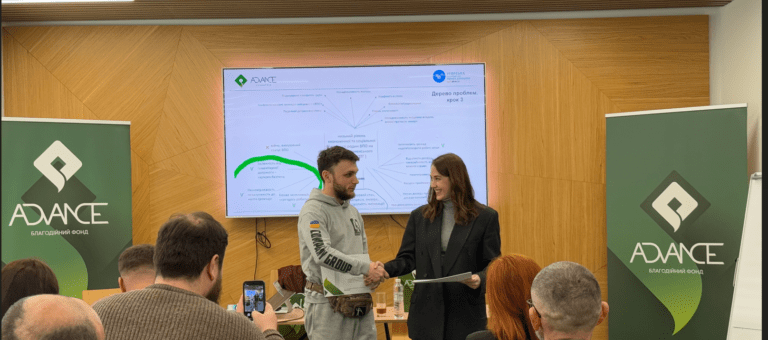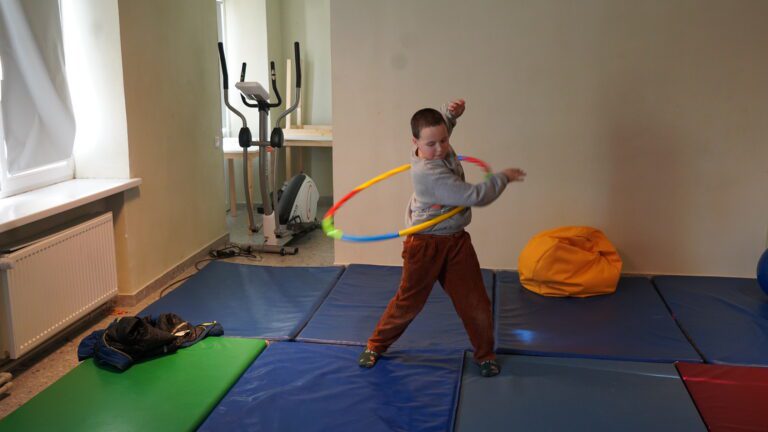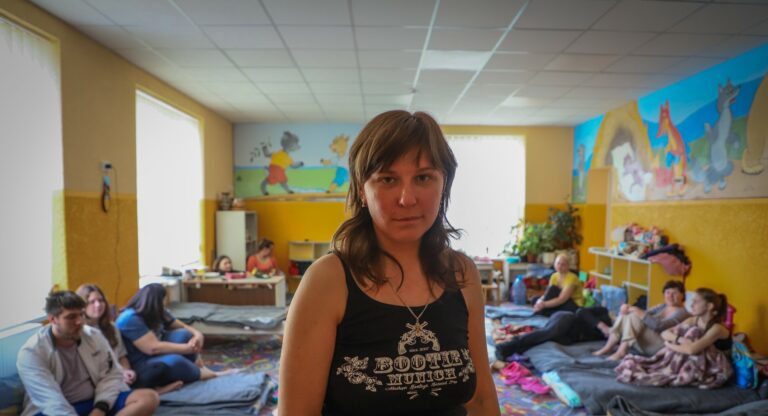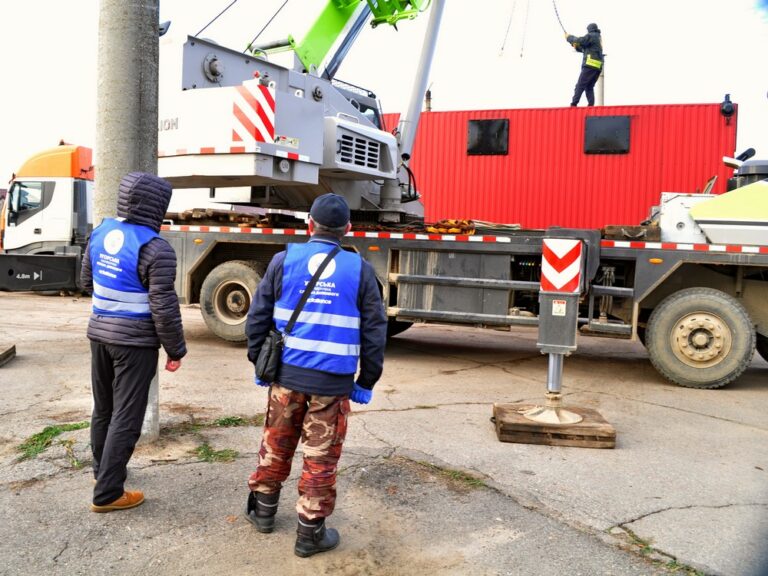A friend in need – Serhiy & Anatoliy
A long, dusty road leads through the steppes of Kherson Oblast: it brings us to Zahradivka, a small agricultural village. The settlement has 406 residents, one shop-post office, a primary school and one support point – run by Hungarian Interchurch Aid (HIA) with financing from the Ukraine Humanitarian Fund (UHF). Here, various services and types of support are available to villagers – but the support point only supplements the extraordinary resilience that Zahradivka’s residents exhibit. We meet with one of them: Sixty-year-old Serhiy does not shy away from difficult situations.
“Life has become a little better. We did not leave during the hostilities. They were shooting here, bombing us, me and my wife were both wounded – shrapnel.” – explains Serhiy. He regularly receives help from the support point, however, the pensioner and his wife also try to protect and support their direct environment as much as they can.
Serhiy has a physical disability, pain often overtakes him. His meagre pension is barely enough to cover his own needs – but that does not stop him from helping out a local man, who was left alone when the conflict escalated in 2022. “I take care of a mentally ill person, his name is Anatoliy. He will be 75 next year, and he is completely alone. He was wandering around the village during the shelling. Perhaps he was deafened by the explosions or his condition worsened because he did not understand what was happening.”
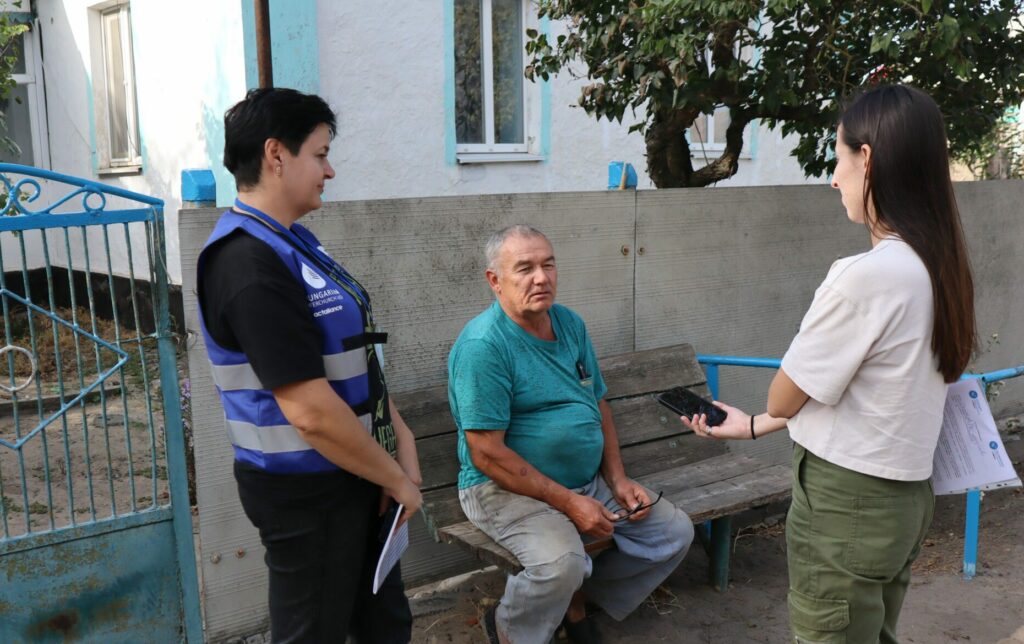

As a man with strong humanitarian beliefs, Serhiy believes that a good community is one that looks out for each of its members. “We took Anatoliy under our care out of the goodness of our hearts. We are concerned about him. Every morning and evening we visit him, go to him. Even during the shelling, we used to visit him. He walks alone everywhere, and can get lost easily. It’s just a shame to leave a man alone – I for sure could not, it is inhuman” – he explains.
In addition to facing the dangers of conflict, Serhiy and his wife have struggled with limited resources. They receive no financial assistance from the government specifically for caring for Anatoliy, which adds significant strain to their already challenging lives. “We buy firewood, gas in cylinders, cook and wash for him.” – he says. Fortunately, both Anatoliy and Serhiy benefit from HIA’s support point in Zahradivka: Anatoliy participates in the UHF-financed Cash for Protection program, while Serhiy receives in-kind aid from the support point.
With 20 support points in hard-to-reach settlements in Donetska, Khersonska and Zaporizka oblasts, HIA’s UHF-funded response aims to target those who did not take refuge in safer parts of the country or the world and had to remain close to the frontlines. These support points distribute tangible aid, register beneficiaries for cash assistance, organise transports and evacuations to the closest city and refer clients to HIA’s in-house legal assistance.
“From the financial support from Hungarian Interchurch Aid, we bought a used washing machine to wash Anatoliy’ clothes. I received food, and I am able to buy medicine and bread”
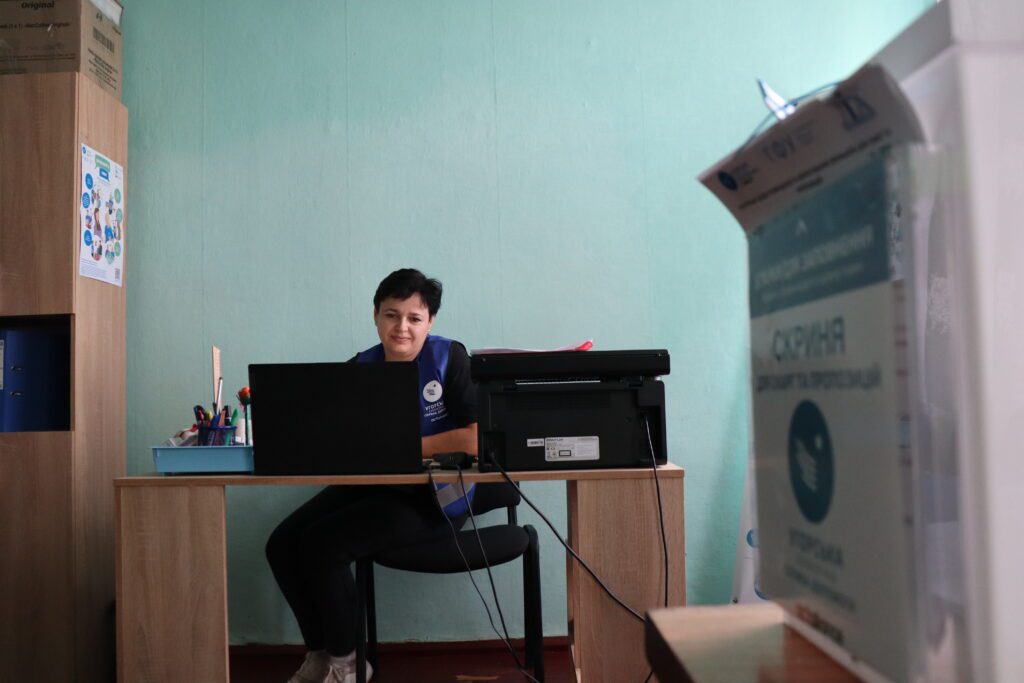

– says Serhiy proudly, but his mind is already occupied by the uncertainty of the future. “We are grateful for any help. Winter is coming, and we need to buy firewood for heating – Anatoliy’s pension of 2360 UAH [$57] is not enough for anything.”
As winter looms, Serhiy’s story underscores the resilience of Zahradivka’s residents who, despite physical challenges and limited means, choose to stand by one another. Thanks to the support from Hungarian Interchurch Aid, they receive essential resources, from food to financial aid, that allow them to face the harsh realities of life near the frontlines. But as Serhiy prepares for the long, cold months ahead, the uncertainty he expresses reflects the ongoing need for support in these vulnerable communities


About the project
Anatoliy was among the 783 individuals who received Cash for Protection assistance through the programme financed by the Ukraine Humanitarian Fund. Of all beneficiaries, 63% were women, 37% men, 19% were people living with disabilities, 20% were under 18, and 51% were over 60. The total disbursed funds amounted to 142,980.74 USD, with the average grant size between 250 USD and 300 USD. During the intervention, significant progress was made to provide principled, suitable, and gender-responsive protection and referral assistance. This intervention focused on addressing urgent protection needs that could not be met through other programmes. Through these interventions, the project “ Multisectoral Support to Conflict-Affected People Residing in Hard-to-Reach Areas of Donetsk, Zaporizhzhia and Kherson Regions” successfully mitigated risks to the physical safety and well-being of vulnerable individuals, contributing to greater protection in the communities of aforementioned oblasts.
